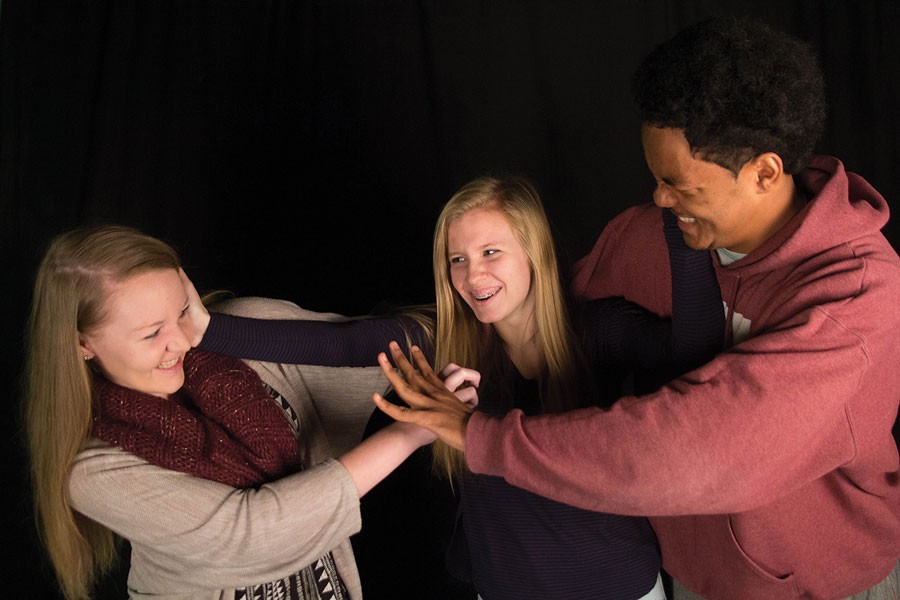Middle children discuss birth order stereotypes
Senior Carlyn Hartsock, sophomore Maleena Hatfield and senior Jalen Galloway understand the pain of being middle children.
As the first semester draws to a close, students and teachers can feel stuck in the middle. While many feel stuck in Kansas, some appreciate its simplicity. Others are somewhere between a friendship and a relationship. For siblings being stuck in the middle can mean defying expectations. Those in the middle of the political spectrum discuss how moderation affects their lives. Firebirds acknowledge the stress of mid-year and provide finals tips. All in all, being in the middle encompasses different experiences.
What do Nelson Mandela, Britney Spears and Bill Gates have in common? They are innovative, extremely famous and were all born middle children.
According to Katrin Schumann, co-author of The Secret Power of Middle Children, the common stereotype of middle children is that they are forgotten or pushed into the background. Birth order ste- reotypes also say the oldest child holds loads of responsibility, while the youngest gets anything they want. This leaves the middle child to fade into the back and receive the least attention from their parents. Common misconceptions include that this lack of attention causes middle children to be awkward, antisocial adults.
As the second oldest of seven siblings, English teacher Kylee Wright has plenty of experience with birth order personalities. While she believes that some people fit the stereotypes, nothing is clear cut.
“Birth order personalities are based on environment,” Wright said. “If you have siblings who leave the picture through divorce or death or siblings that enter the picture through marriage or adoption, then that changes the whole sociology of the family.”
When a younger step-brother joined the family, junior Macie Reeb became a middle child.
“My parents kind of put me in the background,” Reeb said. “My brother gets a lot of attention, and so does my sister because she started college.”
The stereotype of the spoiled younger child is true for her young- er brother, but the loss of attention has not hurt her relationship with her parents according to Reeb.
“[Being a middle child] hasn’t affected how my parents see me,” Reeb said. “My parents definitely love me.”
When freshman Zain Brittain’s sister was born a few years ago, he also went from being the youngest to being a middle child.
“It makes things more complicated sometimes,” Brittain said. “You have to get used to the noise.”
Historically, middle children have gone on to become great leaders. Justice-seekers Abraham Lincoln and Susan B. Anthony were middle children, as were successful innovators like Charles Darwin and Warren Buffett. Unfortunately, not all middle children have be- come upstanding citizens, Donald Trump a prime example of this.
Receiving less attention can result in becoming more independent Wright said.
“Middle children, psychologists and sociologists say, are the ones who feel left out and that can be good or bad for them,” Wright said. “[This] can mean they feel laid back and they like not being bothered or they feel a strong desire to get attention.”
The personalities of middle children are often influenced by older children and younger children, but in different ways.
Middle children can be expected to either live up to their older sibling, or strive to be more successful than them.
“It’s hard to follow in my sister’s footsteps because she’s really smart,” Reeb said. “Sometimes I feel pressured to be like her.”
This expectation, while it can be difficult to deal with, is not always a bad thing in Wright’s experience.
“All the middle children I have known have been some of my favorite people,” Wright said. “They have interesting personalities because they learn from their older siblings, but they’re not the younger child.”










